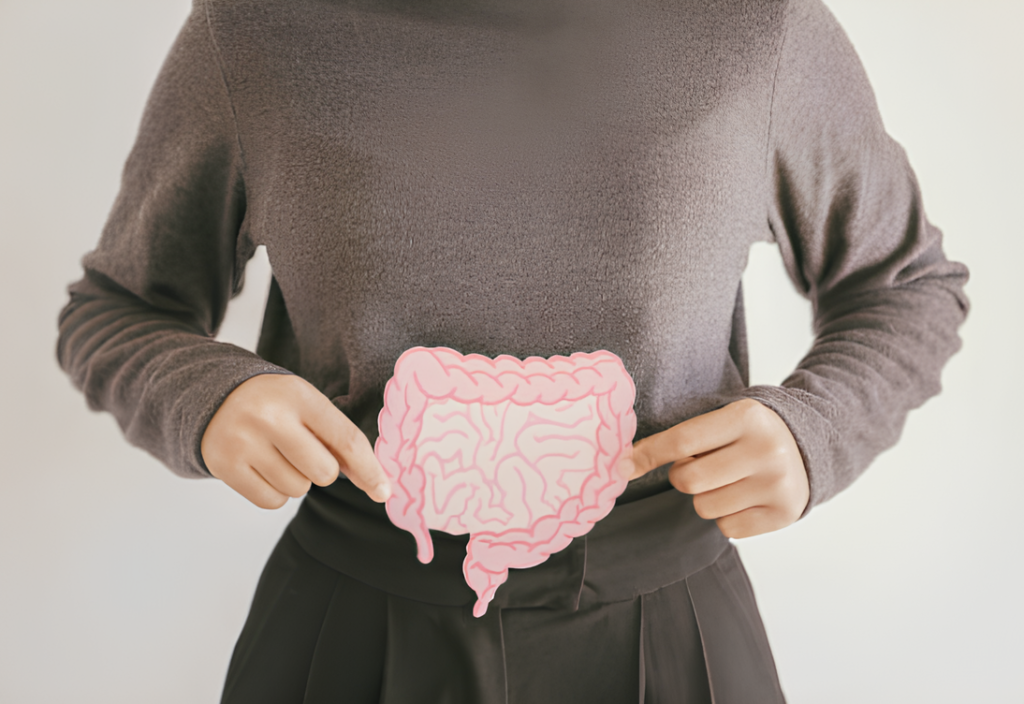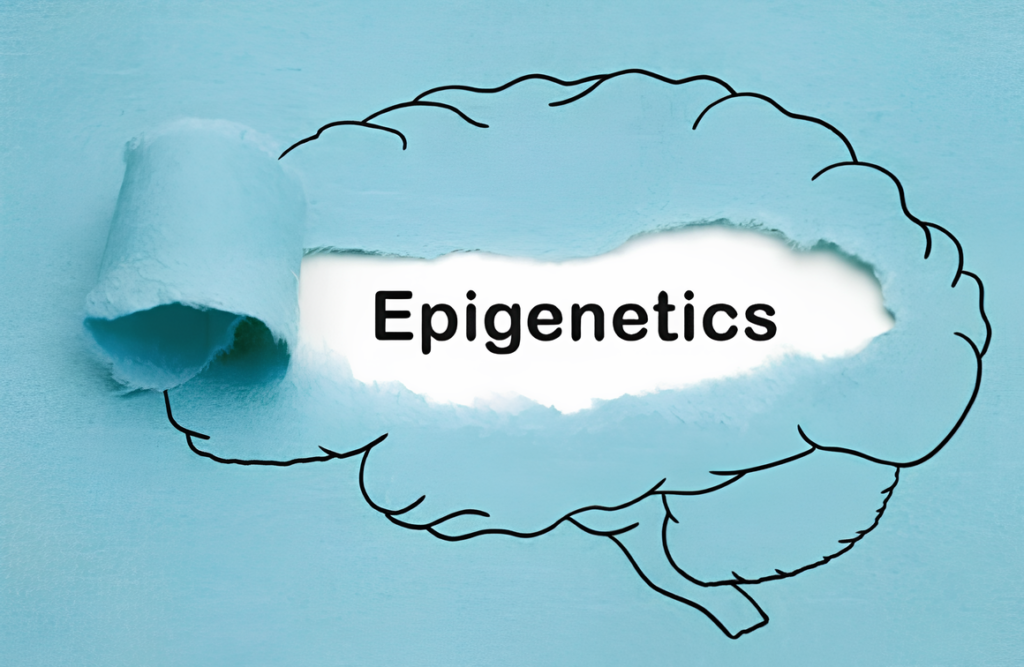Colorectal cancer (CRC) is a leading cause of cancer-related death worldwide. Mounting evidence over the past few years has shown that there is a link between the gut microbiome and the risk of developing CRC. But what is the microbiome? How does it impact the risk of cancer development? Well, the microbiome refers to the genomic information of all microorganisms in the body, while microbiota refers to specific microbial communities. The gut microbiota, consisting mainly of bacteria and some viruses and fungi, has become a recent focus of CRC research. This article explores emerging evidence on the link between gut microbiota and CRC and the potential impact of diet.
Dysbiosis of the gut microbiome is associated with CRC development. Dysbiosis can be described as the disruption of a healthy, balanced microbiota, leading to an increase in harmful microorganisms or a decrease in beneficial ones. Specific bacteria found in CRC patients include Bacteroides fragilis, Fusobacterium nucleatum, and many others (Dai et al., 2018). One particular gram-negative bacteria, F.nucleatum, shows growing evidence of its association with CRC and the amount found in CRC tumours (Flanagan et al., 2014; Li et al., 2016; Nosho et al., 2016). Bacteroides fragilis and Escherichia coli (E. coli) are also associated with CRC, with E. coli causing similar DNA mutational changes in human organoids as those in CRC patients (Pleguezuelos-Manzano et al., 2020). Microbial metabolites are produced by microorganisms in the gut. Some microbial metabolites, such as polyamides and lysophosphatidic acid, are linked to CRC and tumour proliferation (Yang et al., 2022). Evidence strongly suggests a connection between dysbiosis and CRC, but further research is needed to validate specific strains’ roles.
Considerable amounts of research have shown that what we eat impacts the diversity of our microbiome (Hills et al., 2019; Wilson et al., 2020). Let’s look at the specific impact of various diets.
Western Diet
- High consumption of red and processed meat increases CRC risk, with a 20% increased risk for high-meat diets (Bradbury, Murphy and Key, 2020).
- World Cancer Fund currently recommends consuming no more than three portions of red or processed meat a week based on red and processed meats linked to CRC development.
High-Fat Diets
- High-fat diets increase pathogenic bacteria, reduce gut microbiota diversity, and promote cancer-associated fibroblasts (Yang et al., 2022; Kim et al., 2022).
- These diets lead to a dysfunctional gut barrier and increased bile acid hydrolase bacteria.
Obesity
- Obesity is associated with increased pathogenic bacteria in the gut but does not conclusively prove it is a direct risk factor for CRC (Sánchez-Alcoholado et al., 2020).
- Conflicting evidence exists on whether obesity directly causes CRC or affects the microbiota leading to CRC.
Plant-Based Diets
- Plant-based diets, rich in vegetables, fruit, legumes, and fibre, show a protective effect against CRC.
- Increased intake of fruits and vegetables enhances beneficial bacteria like Firmicutes and decreases harmful bacteria like Bacteroidota and F. nucleatum (Kyaw et al., 2023).
- Both vegetarian and vegan diets provide a protective effect against cancer (Zhao et al., 2022).
Mediterranean Diet
- The evidence of the Mediterranean diet’s protective role against CRC is not yet substantial.
- Some indication exists of a connection between this diet and reduced CRC incidence (Zhong et al., 2020; Illescas, Rodríguez-Sosa and Gariboldi, 2021).
Fibre
- High-fibre diets reduce CRC risk, particularly from cereal fibre.
- A 14% risk reduction in CRC is observed with higher fibre intake (Bradbury et al., 2020).
Impact of Research on Dietary Advice
- A balanced diet high in fruits, vegetables, and fibre promotes a healthy gut microbiota and lowers CRC risk.
- Plant-based and vegetarian diets are linked to lower CRC risk, while a high intake of red and processed meats is associated with higher risk.
- Ongoing research (e.g., MeaTIc and BRIDGE-CRC studies) will provide more conclusive dietary advice related to CRC risk.
Conclusion
Collectively, research shows that diet significantly impacts CRC risk and prevention, as well as influences the gut microbiota, emphasising the need for tailored dietary advice. Specific bacteria, such as F. nucleatum and Bacteroides fragilis, and microbial metabolites are linked to CRC, but continued research is needed to validate these bacteria and metabolites as biomarkers for CRC detection. Evidence supports the importance of a diet rich in beneficial bacteria such as Firmicutes and reducing pathogenic bacteria such as F. nucleatum to lower CRC risk. While more research is needed on specific diets, like Mediterranean and high-fibre diets, the gut microbiota is a key factor in CRC development. A diet promoting healthy gut bacteria can positively impact CRC risk and progression.
To read more on this topic, Click Me.
References
Aune, D. et al. (2011) ‘Dietary fibre, whole grains, and risk of colorectal cancer: systematic review and dose-response meta-analysis of prospective studies’, BMJ, 343, p. d6617. Available at: https://doi.org/10.1136/bmj.d6617.
Bradbury, K.E., Murphy, N. and Key, T.J. (2020) ‘Diet and colorectal cancer in UK Biobank: a prospective study’, International Journal of Epidemiology, 49(1), pp. 246–258. Available at: https://doi.org/10.1093/ije/dyz064.
Dai, Z. et al. (2018) ‘Multi-cohort analysis of colorectal cancer metagenome identified altered bacteria across populations and universal bacterial markers’, Microbiome, 6(1), p. 70. Available at: https://doi.org/10.1186/s40168-018-0451-2.
Flanagan, L. et al. (2014) ‘Fusobacterium nucleatum associates with stages of colorectal neoplasia development, colorectal cancer and disease outcome’, European Journal of Clinical Microbiology & Infectious Diseases: Official Publication of the European Society of Clinical Microbiology, 33(8), pp. 1381–1390. Available at: https://doi.org/10.1007/s10096-014-2081-3.
Hills, R.D.J. et al. (2019) ‘Gut Microbiome: Profound Implications for Diet and Disease.’, Nutrients, 11(7). Available at: https://doi.org/10.3390/nu11071613.
Illescas, O., Rodríguez-Sosa, M. and Gariboldi, M. (2021) ‘Mediterranean Diet to Prevent the Development of Colon Diseases: A Meta-Analysis of Gut Microbiota Studies.’, Nutrients, 13(7). Available at: https://doi.org/10.3390/nu13072234.
KC, D., Sumner, R. and Lippmann, S. (2020) ‘Gut microbiota and health’, Postgraduate Medicine, 132(3), pp. 274–274. Available at: https://doi.org/10.1080/00325481.2019.1662711.
Kyaw, T.S. et al. (2023) ‘Variety of Fruit and Vegetables and Alcohol Intake are Associated with Gut Microbial Species and Gene Abundance in Colorectal Cancer Survivors.’, The American journal of clinical nutrition, 118(3), pp. 518–529. Available at: https://doi.org/10.1016/j.ajcnut.2023.07.011.
Li, Y.-Y. et al. (2016) ‘Association of Fusobacterium nucleatum infection with colorectal cancer in Chinese patients’, World Journal of Gastroenterology, 22(11), pp. 3227–3233. Available at: https://doi.org/10.3748/wjg.v22.i11.3227.
McLeod, A. et al. (2023) ‘Design of the Building Research in CRC prevention (BRIDGE-CRC) trial: a 6-month, parallel group Mediterranean diet and weight loss randomized controlled lifestyle intervention targeting the bile acid-gut microbiome axis to reduce colorectal cancer risk among African American/Black adults with obesity.’, Trials, 24(1), p. 113. Available at: https://doi.org/10.1186/s13063-023-07115-4.
Nosho, K. et al. (2016) ‘Association of Fusobacterium nucleatum with immunity and molecular alterations in colorectal cancer.’, World journal of gastroenterology, 22(2), pp. 557–566. Available at: https://doi.org/10.3748/wjg.v22.i2.557.
O’Sullivan, D.E. et al. (2022) ‘Risk Factors for Early-Onset Colorectal Cancer: A Systematic Review and Meta-analysis’, Clinical Gastroenterology and Hepatology, 20(6), pp. 1229-1240.e5. Available at: https://doi.org/10.1016/j.cgh.2021.01.037.
Sánchez-Alcoholado, L. et al. (2020) ‘Gut Microbiota-Mediated Inflammation and Gut Permeability in Patients with Obesity and Colorectal Cancer’, International Journal of Molecular Sciences, 21(18), p. 6782. Available at: https://doi.org/10.3390/ijms21186782
Sofi, F. et al. (2019) ‘Fecal microbiome as determinant of the effect of diet on colorectal cancer risk: comparison of meat-based versus pesco-vegetarian diets (the MeaTIc study).’, Trials, 20(1), p. 688. Available at: https://doi.org/10.1186/s13063-019-3801-x.
Soltani, G. et al. (2019) ‘Obesity, diabetes and the risk of colorectal adenoma and cancer’, BMC Endocrine Disorders, 19, p. 113. Available at: https://doi.org/10.1186/s12902-019-0444-6.
Wilson, A.S. et al. (2020) ‘Diet and the Human Gut Microbiome: An International Review’, Digestive diseases and sciences, 65(3), pp. 723–740. Available at: https://doi.org/10.1007/s10620-020-06112-w.
Wilson, M.R. et al. (2019) ‘The human gut bacterial genotoxin colibactin alkylates DNA’, Science (New York, N.Y.), 363(6428), p. eaar7785. Available at: https://doi.org/10.1126/science.aar7785.
Yang, J. et al. (2022) ‘High-Fat Diet Promotes Colorectal Tumorigenesis Through Modulating Gut Microbiota and Metabolites’, Gastroenterology, 162(1), pp. 135-149.e2. Available at: https://doi.org/10.1053/j.gastro.2021.08.041.
Yang, Y. et al. (2019) ‘Integrated microbiome and metabolome analysis reveals a novel interplay between commensal bacteria and metabolites in colorectal cancer’, Theranostics, 9(14), pp. 4101–4114. Available at: https://doi.org/10.7150/thno.35186.
Zhao, Y. et al. (2022) ‘The Relationship Between Plant-Based Diet and Risk of Digestive System Cancers: A Meta-Analysis Based on 3,059,009 Subjects’, Frontiers in Public Health, 10. Available at: https://www.frontiersin.org/articles/10.3389/fpubh.2022.892153 (Accessed: 31 October 2023).
Zhong, Y. et al. (2020) ‘Association between Mediterranean diet adherence and colorectal cancer: a dose-response meta-analysis’, The American Journal of Clinical Nutrition, 111(6), pp. 1214–1225. Available at: https://doi.org/10.1093/ajcn/nqaa083.



